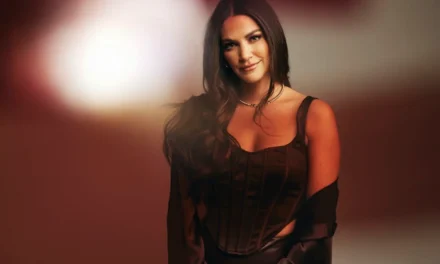Jay-Z’s acceptance speech for the Dr. Dre Global Impact Award included a part in which he highlighted two previous Grammy boycotts he and Will Smith did — while still acknowledging they watched the show anyway. That is a perfect summary of the relationship we have with the Grammys at large now. It’s billed as “The Super Bowl of music,” where the industry’s best comes together with the spirit that the best works from the prior year will be awarded. Again, that’s at least the spirit of what the Grammys should be, but weighing in on art is subjective. Especially when you consider there is a committee of people getting together yearly to do so. Despite that, noticeable patterns have occurred and will probably get going as we tune in yearly. Who can forget the hollow words of former Recording Academy president Neil Portnow in 2018 when he called on female artists to “step it up?” This year’s ceremony included a multitude of performances, nominees, and award winners.
It feels good when a take like that has to eat crow, and the reductive thinking is shown to be a straw man. But then there’s the other aspect that Jay-Z specifically highlighted in another part of his speech. Beyonce is currently the winningest Grammy Award winner, with 32 and no Album of the Year awards to show. It’s been over twenty years since a Black woman has won that award since Lauryn Hill did in 1999. It’s wild to think about all the craftsmanship, the industry shifts (especially with 2013’s self-titled Album), and the accolades Beyonce has achieved in her career; she’s never won the “big” award at the end of the night. The overall tally is starting to feel like a consolation prize. While taking up for Beyonce, his comments reverberate beyond that particular instance. Rap, while still being one of the biggest genres in music, did not have its categories on the main telecast. They also didn’t get away from the “only certain type of albums from certain artists” win the Album of the Year category. There is a noticeable disconnect between how Black music is showcased and the limits on what awards the art form can win.
Even with Jay-Z’s stature (and his 24 Grammy award wins), I’m unsure if that outlook will change. The artists themselves are aware of it. Remember when Macklemore sent that apology text to Kendrick Lamar in 2014? Adele even broke a piece of her Album of the Year award Grammy in 2017 because she felt Lemonade should have won. Acknowledging artists should have won feels more like salt in the wound than an affirmation of uncrowned excellence. It’s not that the Grammys aren’t aware of this fact. They know that artists and music lovers are partially there because of these snubs and play on the point of hope they will get things right next year. It almost disserves the awards and artists nominated because you have set a standard of anticipatory drama over doing the right thing. That goes into the aspect Jay stresses to keep showing up. The story of Victoria Monét’s ascent as a jack-of-all-trades from MTV denying her moment to last night’s three Grammy wins, including Best New Artist, was a beautiful personification of that. Conversely, The Weeknd and Drake have done away with that notion and declared that the Grammys as an institution are obsolete. Therein lies the question of where you draw the line to keep showing up to a place that is not incentivized or inclined to give your craft the highest honor possible.
At what point do you acknowledge that your presence may be inhibiting the voting of these awards to continue the way they have? These are tricky things to ponder because you want to be recognized in a situation deemed the highest achievement in your occupation. Black artists whose creativity permeates all genres and serves as a vector to keep them alive simply by affiliation. If you look at the Grammys, the show counts on Black artists being there to garner interest. But perhaps you have to see the forest from the trees and notice that someone with a talent level like Beyonce and SZA is still insufficient to break that barrier of the main categories. Depending on the person, it’s a different answer, but perhaps the absence of artists will finally get the message across. Or maybe it won’t. Jay-Z cleverly walked the line between sticking up for his wife, throwing some jabs at some “undeserving” award members of the past, and also beckoning the academy to write their wrongs. He’s aware that his and Beyonce’s legacies will far outrank any trophy they could obtain. Jay was also mindful that his oldest daughter was right next to him and speaking to the hopes that in whatever she chooses to do, the bureaucracy that exists to ignore her parents will be lessened for her and Black girls like her.
The real win would occur with the Grammy award bodies willing to meet Black artists in places where they don’t have to compromise who they are and what they create to get the desired accolades. That will take a lot of self-reflection, which I am not sure the Grammys are ready to do yet. We exist in a moment where we have to decide if we will try to change a definition not defined by the culture itself or define ourselves by a new metric.
Photo Credit: VALERIE MACON/AFP VIA GETTY IMAGES













